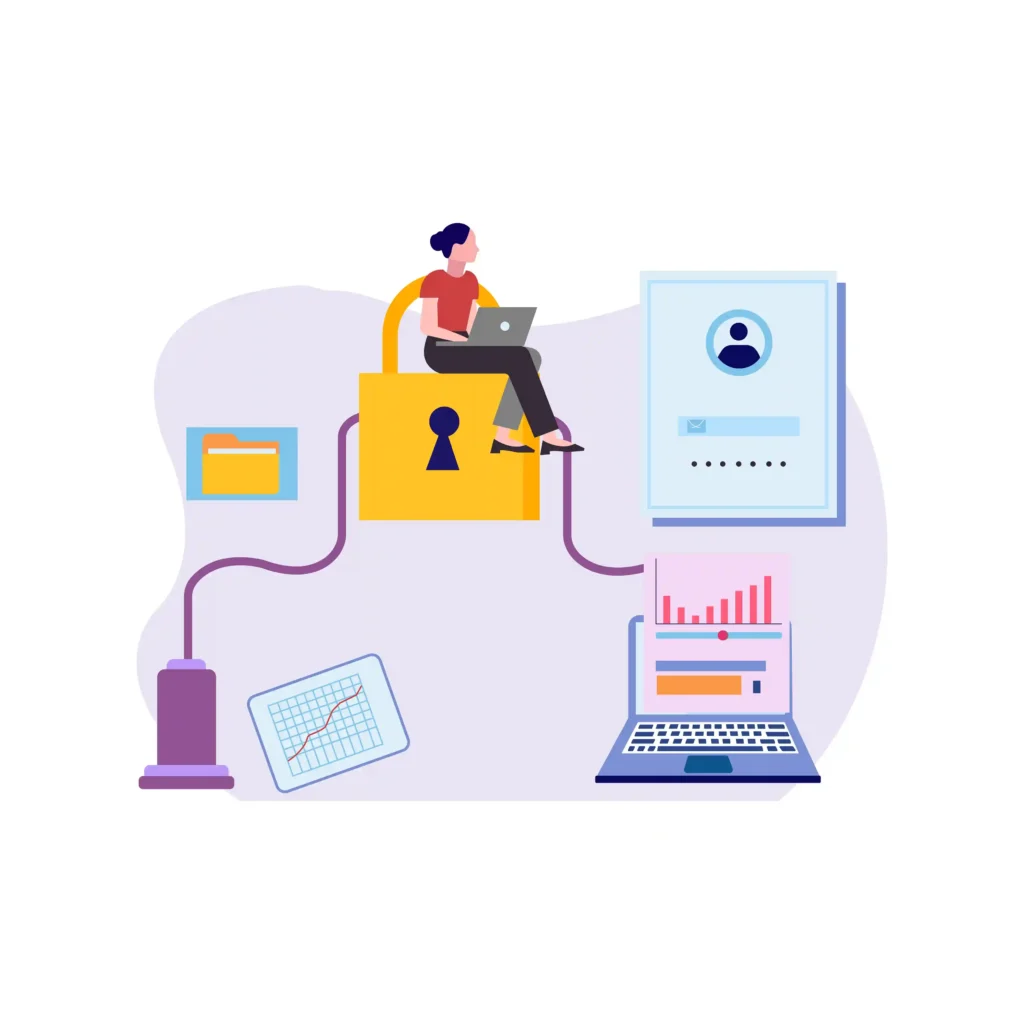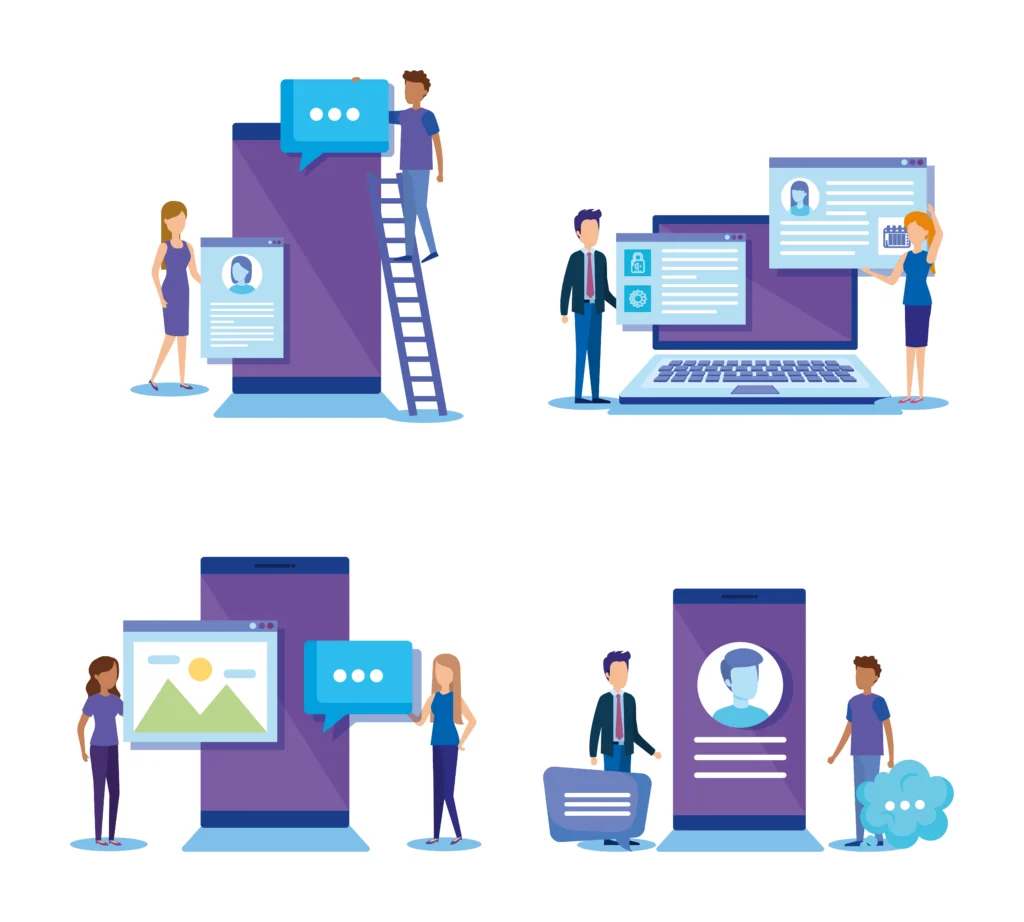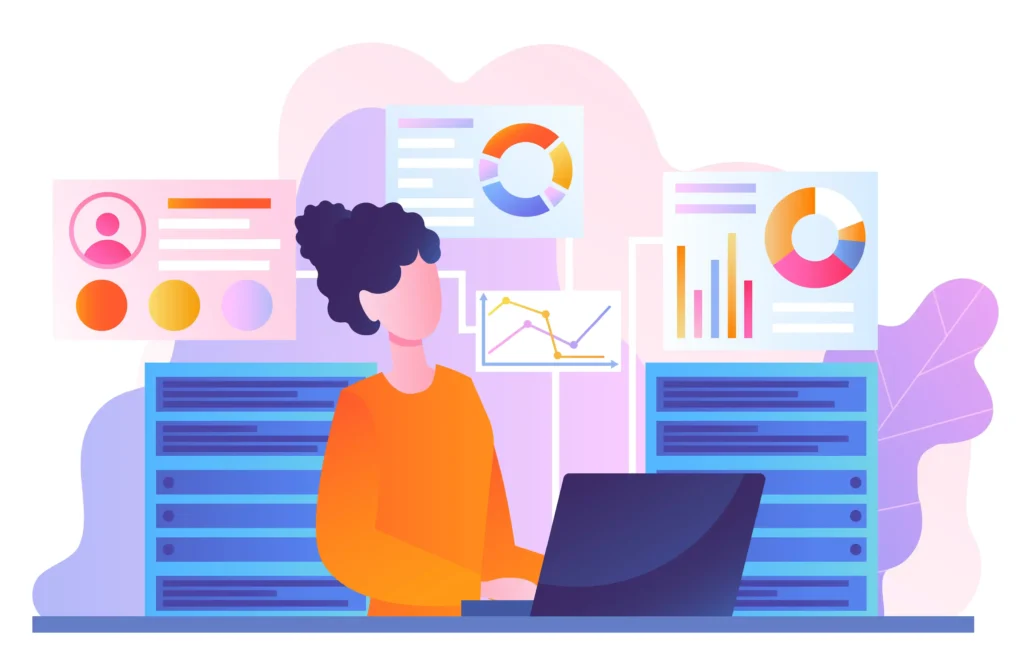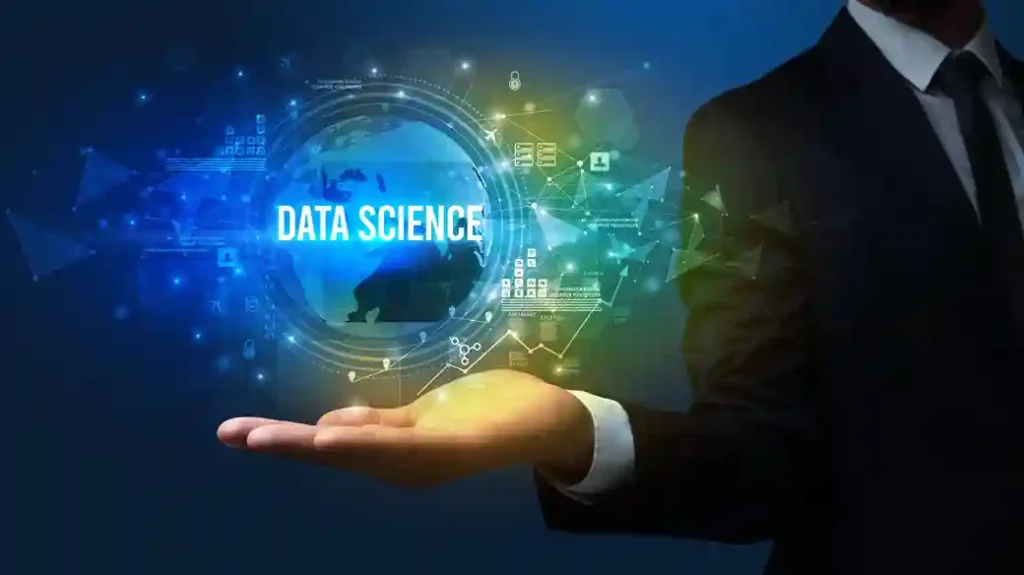The word “privacy” itself has now become invalid. Every new page displays pop-up notifications about updated privacy policies, and we agree to their terms. But is personal data safe? And how does data science play a role in all of this?
Data science is all about collecting data to understand user behaviours and patterns and helping companies improve their performance based on these insights. So, how exactly is this information being collected?
Is personal Data safe?

Let’s discuss the data and how it is actually collected from individuals. So, is personal data safe actually?
What are the types of data collected?
In discussing is personal data safe? Let’s first discuss about the data.
Personal data comes in many forms,
- Demographic information (age, gender, location)
- Contact details (email, phone number, address)
- Online behaviour (browsing history, search queries)
- Financial data (credit card information, purchase history)
- Biometric data (fingerprints, facial recognition)
- User-generated data (reviews, comments, photos, and videos shared by users on platforms)
How Data Is Collected
Your personal data is often collected through,
- Web Tracking – Cookies and pixel trackers monitor your activity across websites.
- Apps and Services – Signing up for free apps often means agreeing to data collection.
- IoT Devices – Smart devices like wearables and home assistants constantly gather data about you.
Data scientists process this raw data, clean it, and use algorithms to uncover trends and patterns. While this is impressive, considering the innovative side, it raises an important question: Is personal data safe?
Use of this personal data by companies

- Businesses use personal data to create ads that appeal to individual customers.
For example, Amazon suggests products based on what you’ve searched for or bought before. Facebook shows you ads based on your likes and posts.
- Companies analyse customer data to design products that meet individual audience’s needs.
For example, Nike uses data from its app to suggest shoes that suit your workout style. This helps them create products you’re more likely to buy.
- Businesses use customer data to offer better support and solutions to the customers.
For example, Netflix looks at what you watch to recommend movies you might enjoy. Spotify creates playlists based on the songs you’ve listened to.
- Companies use personal data to identify risks, like fraud or credit issues.
For example, banks like Chase check your spending habits to stop suspicious activity. Credit card companies can alert you if something seems off.
- Personal data helps businesses make smarter decisions and stay ahead of competitors by initiating better campaigns.
For instance, Coca-Cola studied what people like and created vending machines where you can mix your drinks. Uber uses data to know when and where more rides are needed. Now that you have an idea of how these companies collect data, the main issue that bothers you, ” Is personal data safe?”, is rectified by data scientists by addressing it.
How do data scientists solve data privacy issues?
Data privacy is always a concern, so what is the role of data scientists in addressing this?

Anonymisation of Data
Data scientists hide personal details in data to protect privacy while still making the data useful for study.
Techniques Used in Anonymisation:
- Data Masking – Replacing real information with fake but realistic data.
Example: In customer support, credit card numbers are shown as **** **** **** 1234 to hide sensitive details.
- Generalisation – Simplifying data to make it less specific, like grouping ages into ranges.
Example: Instead of exact ages, data is grouped into ranges like 20–29 or 30–39.
- Suppression – Removing sensitive data completely.
Example: In public datasets, fields like Social Security Numbers are deleted to protect privacy.
Anonymisation helps protect privacy while keeping data useful for analysis. Helping you solve your doubt, is personal data safe,
Implementation of Differential Privacy
Differential privacy adds small, random changes (noise) to data, making it impossible to trace back to an individual’s details.
- It protects personal data while providing useful insights.
- It meets strict privacy requirements, making it ideal for sensitive fields like healthcare and finance.
How is it used :
A company like Apple uses differential privacy to study how people type on their keyboards to improve autocorrect without knowing what any one person typed.
In healthcare, it allows researchers to analyse patient trends, like the effectiveness of treatments, without revealing individual patient information.
Encryption for Data Security
Data scientists use encryption to protect data, whether it is stored (at rest) or being transferred (in transit).
Types of Encryption:
- Symmetric Encryption: In this method, data is locked using a key and can only be unlocked with the same key. This approach is fast and efficient, but it requires both the sender and receiver to securely share and store the key.
When connecting to a secure website, if the website uses symmetric encryption (like AES), both the server and your browser share the same key to encrypt and decrypt the data. However, this key must be securely shared and kept private between the two parties.
- Asymmetric Encryption: This method uses a pair of keys – a public key and a private key. The public key is used to lock (encrypt) the data, and only the private key can unlock (decrypt) it. This approach is more secure since the private key is kept secret, and it does not require sharing the private key between parties.
When you access a website over HTTPS, the website sends its public key to your browser. Your browser uses this public key to encrypt data like credit card numbers before sending it to the website. Only the website, with its private key, can decrypt the information securely.
By using encryption, data scientists ensure that even if unauthorised people gain access to the data, they cannot read or use it without the proper keys, thus maintaining privacy and security. So, is personal data safe, yes with proper encryption of data.
Privacy-Preserving Machine Learning (PPML)
PPML helps build machine learning models without exposing personal data.
Key Techniques:
- Federated Learning: Models are trained on users’ devices, and only the combined results are shared, keeping personal data private.
- Homomorphic Encryption: Data stays encrypted while calculations are made, so no one sees the actual data.
- Secure Multi-Party Computation (SMPC): Multiple parties can work together on data analysis without revealing the raw data to each other.
These methods are especially important in industries like healthcare and banking, where protecting privacy is essential. Is data science safe,
Not just that, there are many other ways to protect personal data including,
Risk Assessment and Privacy Audits
Risk assessment involves identifying weaknesses in data processes and testing systems for potential risks. Privacy audits review how data is collected, stored, and used to ensure privacy standards are met.
Synthetic Data Generation
Synthetic data creates fake data that mimics real data, ensuring privacy while still being useful for testing and training purposes.
Use of Access Controls
Access controls limit who can view sensitive information by setting permissions based on roles and adding extra layers of security like multi-factor authentication.
Developing Privacy-Aware Algorithms
Privacy-aware algorithms are designed to protect user privacy by atoning data or avoiding the use of sensitive attributes while still delivering useful insights.
Collaboration with Legal and Compliance Teams
Data scientists work with legal teams to ensure that data practices comply with privacy laws like GDPR and CCPA and stay up-to-date with new regulations.
The future of data security

The future of data security looks bright because of new advancements in data science:
- Quantum Computing Encryption: Scientists are working on making encryption so strong that no one can break it.
- Blockchain Technology: This technology helps store data in a way that no one can change it without permission.
- AI-Powered Privacy Assistants: Personal AI helpers will help people control and manage their privacy settings.
Is personal data safe? The answer depends on a combination of robust technological measures and user awareness. Data science offers powerful tools to secure personal information, but individuals must also adopt best practices to protect themselves. Together, these efforts can ensure a safer digital future for all.
If you are someone looking to evolve around the field of data science, Look at what Kerala’s first data science dedicated academy is offering. For data science courses see data science courses in Kochi.